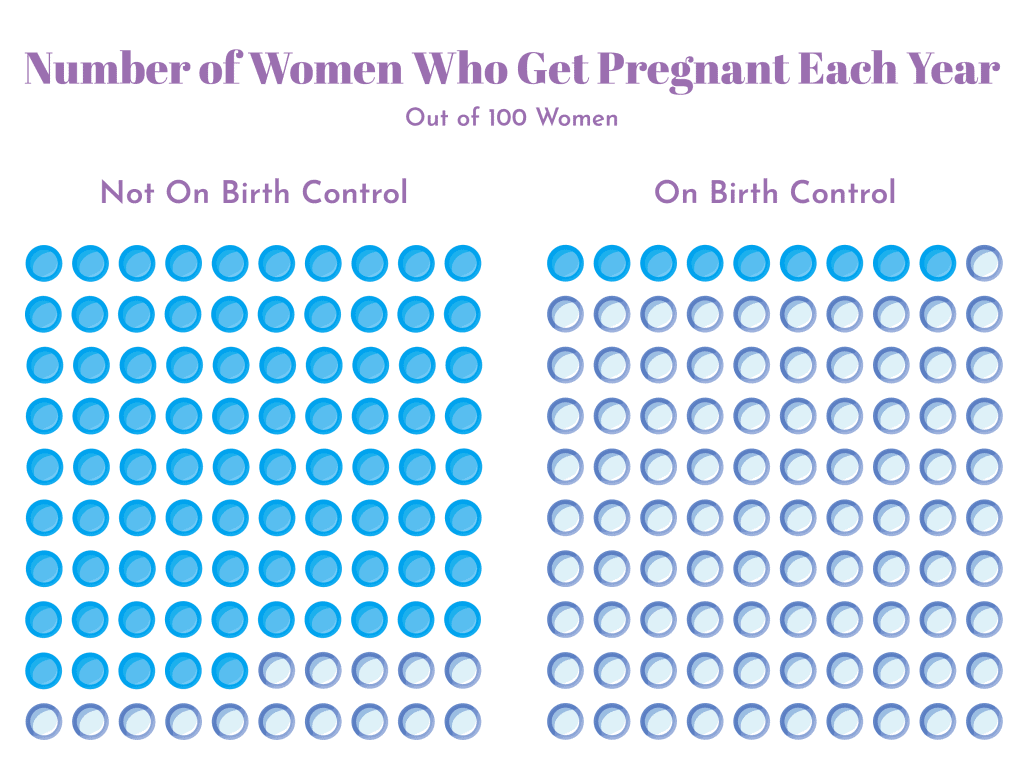Medically reviewed by Sophia Yen, MD, MPH – Written by Pandia Health Editorial Team
Birth control pills were designed for women to prevent pregnancy, but there are many other uses that include regulating menstruation (your periods), balancing hormone levels, treating acne, and more.
Most conversations about birth control pills usually focus on pregnancy prevention. And while birth control pills do a great job at that, it’s good (and really important) to remember that a large number of women take the pill for reasons that have NOTHING to do with pregnancy.
According to a study by the Guttmacher Institute, that number in the U.S. is roughly 210,000 or 14% of women using oral contraceptive pills.
Of the women who take the pill,
31% of them need it to reduce cramps or menstrual pain,
28% of women use it to prevent migraines and other side effects of periods,
14% use it for acne, and
4% use it to treat endometriosis.
There are many different methods of birth control and the most commonly used of these is the birth control pill.
Birth control pills are safe, successful, and relatively inexpensive. Today’s oral contraceptive pill (OCP) has a rate of success in the high 90s which makes it a great method of avoiding an unplanned pregnancy.
How the Pill Works
Birth control pills use hormones and work by preventing fertilization of the egg. Ovulation (when an egg pops out) is prevented by hormones. The hormones also cause thickening the mucus on the cervix which makes it difficult for a sperm to reach an egg. The pill has created a mucus wall and blocked the egg from developing or popping out.
“Regular” birth control pills contain a synthetic form of two female hormones, estrogen and progesterone. Synthetic hormones mimic pregnancy and then the pituitary gland does not release other hormones that tell the ovaries to create and release mature eggs.
Birth control pills work on a schedule. It is essential to take the pills at the same time every day. A schedule creates a stable level of hormones in your body.
How long do birth control pills take to work?
Birth control pills need to be started within 5 days after your period starts. Once you begin taking the pill, you will be protected from unwanted pregnancy right away. For example, if your period arrives on a Monday morning, start the pill anytime until early Saturday and your protection will start right away.
If you start combination pills any other time, you will be protected from unwanted pregnancy seven days after you have taken the pill. Use another method of birth control for those seven days before the pill becomes effective.
Progestin-only pills, also known as “mini-pills” or POPs can be started at any time. You will be protected after 48 hours or two days from when you start the mini-pill.
However, to be absolutely safe, we always recommend a backup/abstain for 1 month. And to always use a condom to prevent diseases and it’s just cleaner for the woman.
Can Birth Control Pills cause infertility? TLDR: No.
Watch our video by our Co-Founder and CEO, Dr. Sophia Yen.
Disclaimer: The views expressed in this article intend to inform and induce conversation. They are the views of the author and do not necessarily represent the views of Pandia Health, and are for informational purposes only, even if and to the extent that this article features the advice of physicians and medical practitioners. This article is not, nor is it intended to be, a substitute for professional medical advice, diagnosis or treatment, and should never be relied upon for specific medical advice.

